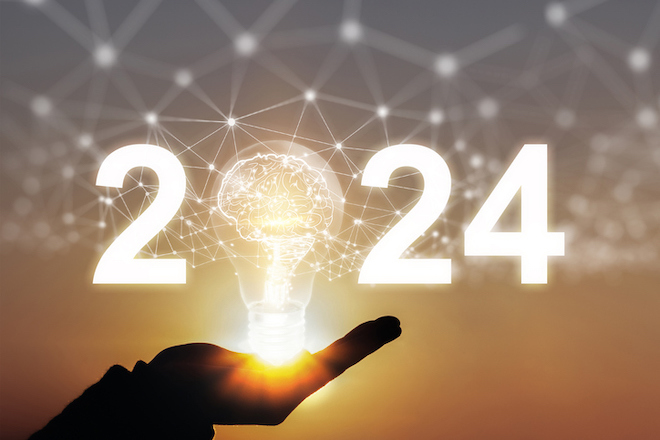
What do the top minds in graduate business education expect 2024 to bring to the halls of learning? More focus on sustainability, artificial intelligence (especially generative AI), and business as a force for good, for starters. But that’s hardly news. Read on to see what else the leaders of some of the world’s premier business schools think is coming — and, therefore, what they plan to prioritize.

Cornell Johnson Dean Vishal Gaur: “I predict that diversity programming and the leadership aspect of that area will continue to expand in the coming years”
Vishal Gaur, Anne and Elmer Lindseth Dean, Samuel Curtis Johnson Graduate School of Management
In looking ahead to 2024, I predict that the importance of our leadership curriculum at the Samuel Curtis Johnson Graduate School of Management, part of the SC Johnson College of Business, will expand and grow. Leadership skills in crises and complex settings have become more critical than ever driven in the past years due to changing work habits and cultures in organizations, geopolitical upheavals, challenges to values, climate, health, and inequality, and the emergence of AI technology.
At the Johnson School, our priority is to educate purposeful empathetic leaders through our leadership curriculum. Our goal is to prepare leaders who can lead with values and positive influence. Our Courses in the areas of critical thinking, crisis communications, courageous conversations, and societal impact are going to grow in importance.
As the industry landscape evolves, many of our MBA students take courses outside the business school to explore and stretch their knowledge. Driven by this, we have been defining the role of MBA education in new career paths such as the Johnson Cornell Tech MBA in New York City and a Digital Technology Immersion in our Two-Year MBA program in Ithaca, NY. As technology and analytics are becoming essential to most industries and becoming the method to solve new societal problems, we are emphasizing the connectivity of the Johnson MBA to our college of business and the rest of Cornell. I predict that our activities in these areas through our Emerging Markets Institute, Entrepreneurship curriculum, and NYC Intensives, are going to become even more relevant.
On a related note, just a few years ago, we created courses in AI Strategy and Analytics and believe the value of these courses will expand. I believe these topics of AI and analytics will become infused throughout our curriculum to teach our MBA students how to make decisions in technology-rich and algorithm-rich environments.
Learning habits of students are changing post-Covid. Recognizing this, we have embarked on a curriculum review to focus on improving the student MBA experience. I predict that in the coming year there will be increasing experimentation with different forms of learning and blending of traditional lectures with exercises, as well as online components.
The significance of diversity in business environments is apparent. At the Johnson School, we have the oldest Office of Diversity and Inclusion across all U.S. business schools, which has enabled us to create a strong culture for diversity through programming and representation of under-represented minorities and female students. Last year, we admitted an MBA class with 43% women and 35% underrepresented students.
We are actively continuing to integrate diversity, inclusiveness and belonging across the SC Johnson College. Finally, I predict that diversity programming and the leadership aspect of that area will continue to expand in the coming years.

Notre Dame Mendoza Dean Martijn Cremers: “Students will continue to appreciate in-person learning where they join a tight-knit community that supports mutual advancement and holistic growth”
Martijn Cremers, Dean, Notre Dame Mendoza College of Business
I anticipate a growing recognition of the critical role that business schools play in developing leaders who understand the purpose and responsibility of business toward contributing to everyone in society, especially as we face continual disruption from complex global geo-political shifts and rapidly advancing technology. This charge applies to educating students as future leaders and to business research that critically examines and ethically shapes emerging trends and developments such as generative AI.
At the Mendoza College of Business, we focus on the development of servant leaders who “Grow the Good in Business” through an integrated vision of business. We will continue to add international immersions and experiential learning opportunities through programs including the Meyer Business on the Frontlines Program, the study abroad Mod-Away program in Chile and international consulting engagements.
I also believe students will continue to appreciate in-person learning where they join a tight-knit community that supports mutual advancement and holistic growth. The opportunity to connect with others in-person — engaging academically, socially and spiritually — and join a community for life is a rare privilege.
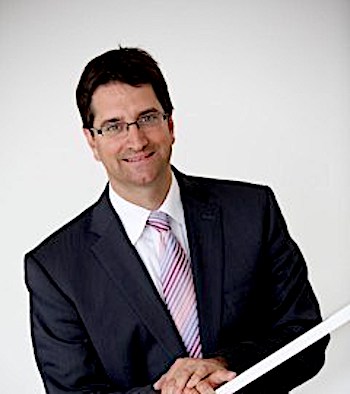
INSEAD’s Urs Peyer: “I expect exciting avenues for students to create new businesses with and out of GenAI – but also informed debates about the ethics of AI”
Urs Peyer , Dean of Degree Programs & Associate Professor of Finance, INSEAD
AI and sustainability take centre stage in 2024
2024 is another year where INSEAD’s mission of bringing together people, cultures and ideas to develop responsible leaders who transform business and society is more relevant than ever for the world in building business together across cultures for the benefit of peaceful progress.
I would also expect 2024 to create a lot of debate around GenAI/ChatGPT. Students will be exposed to lots of opportunities to explore applications of GenAI. While such tools will support companies as well as learners, I expect exciting avenues for students to create new businesses with and out of GenAI – but also informed debates about the ethics of AI. We already see how the diverse backgrounds of INSEAD MBAs help each student to get new insights as to the opportunities and risks of AI in business.
Beyond AI, sustainability is now more deeply embedded in the MBA curriculum. I expect that in 2024, we are managing to excite all students to see the opportunities that sustainability provides for companies as well as their own careers.
It is not profit or sustainable – it is not high-paying jobs or sustainability; there are plenty of opportunities in applying the latest management tools to combine both, performance and progress.
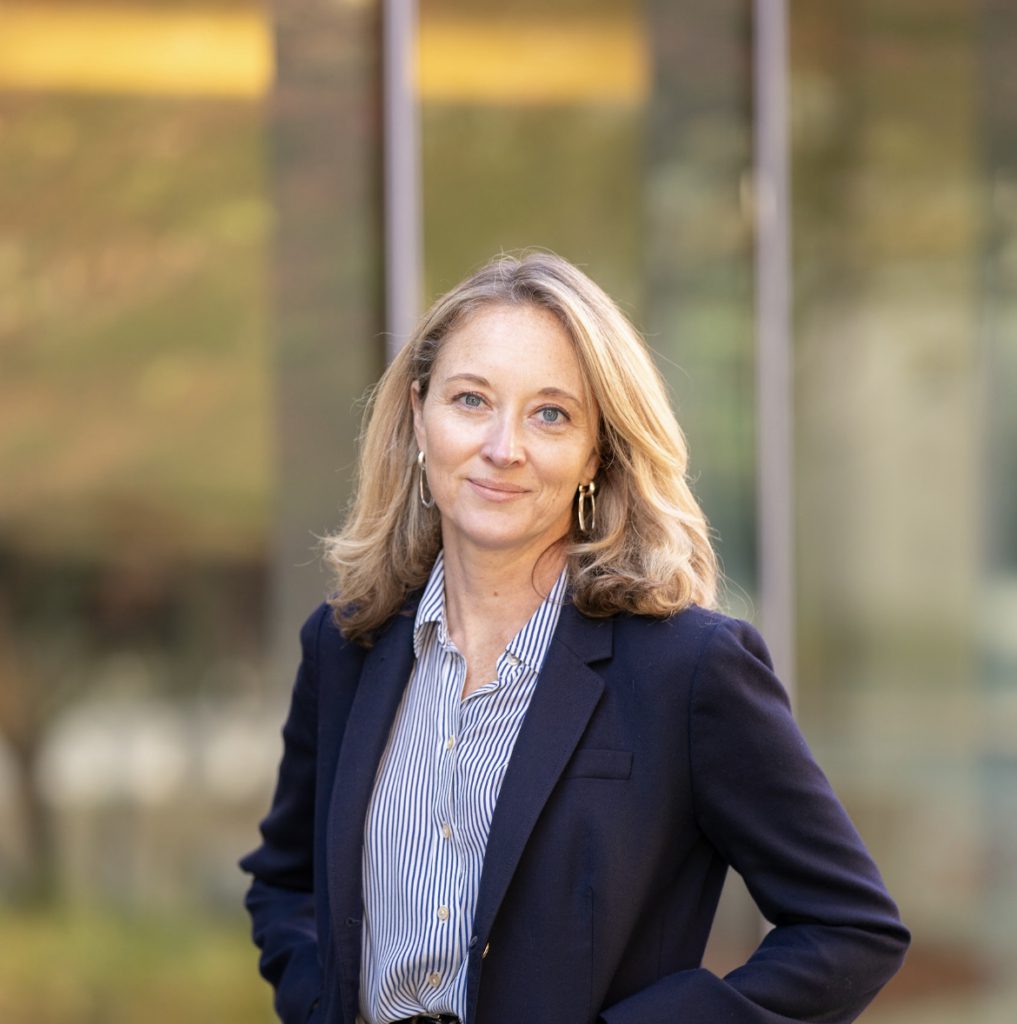
University of San Francisco School of Management’s Courtney Masterson: “Social impact is most likely to occur when we are engaged in our local and business communities–dialoguing, sharing resources, and co-creating solutions”
Courtney Masterson, Associate Dean of Faculty, Research & Impact, University of San Francisco School of Management
In 2024, I predict we will continue to think critically about what it means to have social impact as business schools. It’s more than signing a pledge, hanging a sign, or updating our website. We know our students demand and deserve a more authentic approach. At the University of San Francisco School of Management, we take our responsibility seriously to develop students as leaders who promote a more just and sustainable economy.
Like many of our peers, we are committed to Principles of Responsible Management Education and playing our part as global citizens in advancing the SDGs. I think the opportunity is for business schools to move beyond sharing our “counts” of social impact activities to holding ourselves and one another accountable. This means thinking about global challenges and identifying how your school is uniquely and authentically positioned to leverage its resources to address them. A focus on quality over quantity.
In our efforts to address global challenges, we also need to keep leaning into the local level. For example, in San Francisco, our city and local business leaders are in need of innovative solutions to advance sustainability, housing, transportation, and commerce. For more than a decade, our Malloy Group has brought together graduate students, faculty, and the San Francisco Bay Area business community to exchange and create ideas and knowledge. Our city is the ultimate experiential learning opportunity for our students.
My hope for the year ahead is that we continue to transform how learning comes to life for our students. Social impact is most likely to occur when we are engaged in our local and business communities–dialoguing, sharing resources, and co-creating solutions.
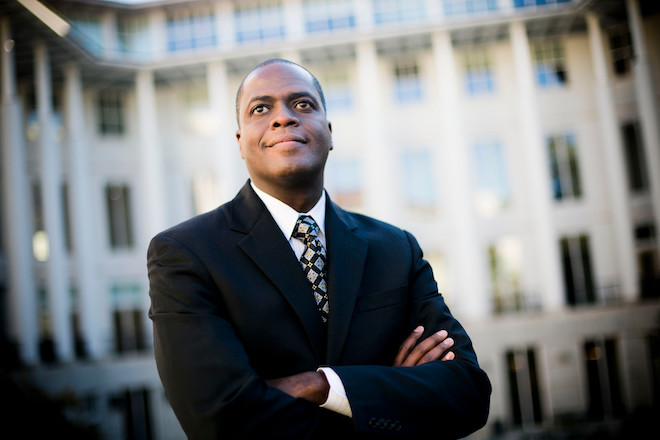
Emory Goizueta’s Brian Mitchell: “The schools that ‘win’ 2024 will be the ones that deliver on that expectation by providing consistently high-quality academic experiences though a variety of modalities”
Brian Mitchell, Associate Dean of Full-Time MBA Programs & Goizueta Global Strategy and Initiatives, Emory University’s Goizueta Business School
My prediction about the future begins with a nod to the past. Once upon a time, the idea of “going to business school” was synonymous with leaving one’s job and getting a Two-Year MBA. Those days are long gone, and my prediction is that 2024 will be the year we see a tipping point in the level of collaboration between degree programs and formats that redefines graduate management education.
I expect the number of dual and joint business degree programs to grow significantly as more schools introduce specialized master’s degrees and work to coordinate faculty expertise across programs. At Goizueta we piloted this with our One-Year MBA and MS in Business Analytics programs in 2023. We learned that this is an approach that appeals to a highly qualified segment of students, and also leverages the range of expertise within our faculty.
At the same time, I predict a continued increase in the number of programs offering flexible formats, ranging from fully in-person to fully online and everything in between. I expect this to be the case all the way down to the contact-hour level, meaning one class session might be online and the next might be in person for the same course. Previously we acknowledged this at the program or course level. The difference now is that students expect us to be even more flexible because they experience that in other aspects of their lives.
This generation of learners has made it clear that they value flexibility in how they pursue graduate education. The schools that “win” 2024 will be the ones that deliver on that expectation by providing consistently high-quality academic experiences though a variety of modalities.
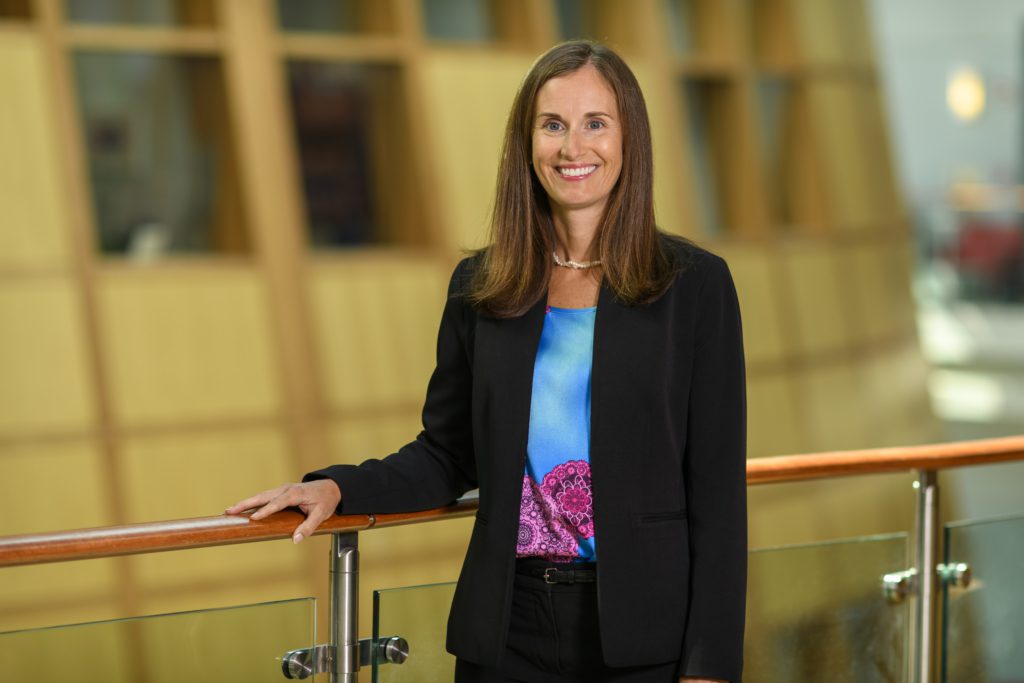
Georgetown McDonough’s Christine Murray:
Christine Murray, Associate Dean & Managing Director of the McDonough Career Center, Georgetown McDonough School of Business
As I enter my sixteenth year working in career development, I foresee ongoing innovation in how we prepare students for an evolving career landscape, which I have witnessed firsthand at Georgetown University’s McDonough School of Business. We are seeing more universities approach business education with an innovative, globally-minded, and socially responsible perspective to prepare students for careers of the future. Rooted in the Jesuit tradition, Georgetown has lived these values for over 200 years, and we continue to make important strides in our mission to prepare students for purpose-driven careers in business.
This past year, Georgetown McDonough launched new programs, developed new centers, and broadened our footprint geographically. Our Full-time and Flex MBA programs grew their 40-year legacy to include a third option, the Flex MBA Online, which offers more flexibility in a fully online modality through synchronous and asynchronous coursework. We also welcomed the inaugural class of the M.S. in Global Real Assets students this year to study the intersection of real estate, infrastructure, and environmental social governance. The M.S. in Management and Executive MBA programs expanded in size. And, notably, we launched the Executive MBA in Dubai to bring our top-ranked program to leaders in the UAE.
As our programs offer more innovation in how they deliver courses, career development must also adapt to new modalities in order to provide relevant career education, co-curricular activities, and networking connections for a diverse group of students. Additionally, the ability to work across cultures and open global pathways for an international student population must be a priority. Schools must be able to think differently about career preparation and employer development, particularly as it relates to hybrid and asynchronous learning options. As a Jesuit school, Georgetown also keeps discernment at the forefront to ensure we adapt our career offerings for students of different ages and stages and provide more customized programming for an increasingly diversified student audience.
Simultaneously, the evolving landscape prompts questions about how employers will respond to graduates from these varied programs. Will companies who traditionally hired only MBA students broaden their pipelines to include master’s students? How can career centers support employer partners as academic programs diversify, accommodating talent beyond traditional undergraduate and MBA candidates? Addressing these challenges requires thoughtful consideration, especially concerning campus recruitment for online or geographically dispersed students. At Georgetown McDonough, we are tackling these questions by building new systems and processes, expanding our employer development strategy for masters programs, tapping into our depth and breadth of alumni, and using data to inform how we prioritize our efforts and resources. We have built an infrastructure to best fit our students’ needs and our school’s organization, and in doing so, we have established a strong foundation to strengthen our existing employer partnerships and build new ones.
As we step into 2024, my focus is on addressing these questions and building innovative solutions. I hope that talent acquisition and management teams, human resources professionals, and hiring managers also contemplate how they can tap into a more extensive, global talent pool emerging from business schools amid the transformative shifts in higher education. We look forward to working alongside our employer partners to create mutually beneficial pathways for our students as they advance their careers and leave their mark on a changing business landscape.
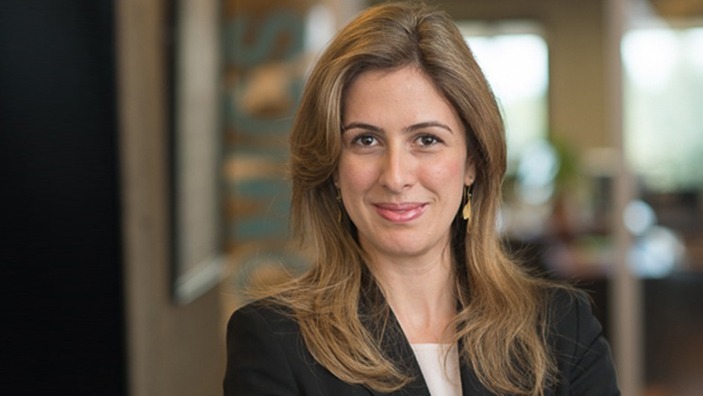
Cambridge Judge’s Juliana Kozak Rogo: “Leaders must be cross-disciplinary, possess a critical mindset, demonstrate conscientiousness, engage in thoughtful analysis, and be bold convention challengers”
Juliana Kozak Rogo, Management Practice Associate Professor & Director of the MPhil in Management Programme, Cambridge Judge Business School
Numerous pivotal trends and challenges lay ahead in 2024 as societies move further away from the pandemic. From supply-chain shocks and rebalances to sustained inflationary pressures, the ongoing normalisation of monetary and fiscal policies pose substantial impacts on worldwide economic recovery. The redefinition of the global energy map introduces new winners and losers, coupled with trade restrictions, potential fragmentation, and a looming geopolitical recession, signalling vulnerabilities on the horizon. On a brighter note, the advent of the AI revolution promises labour market adjustments and noteworthy productivity gains if managed effectively.
In this intricate environment, where the consequences of decisions reverberate profoundly across firms and society, the preparation of business leaders has never been more critical. Leaders must be cross-disciplinary, possess a critical mindset, demonstrate conscientiousness, engage in thoughtful analysis, and be bold convention challengers. Thus, business education in all its forms – including diverse degree programmes and Executive Education – plays a key role in preparing leaders for these uncertain yet exciting times, not least the synergies formed involving faculty, students and companies in crafting innovative solutions while challenging each other to think differently and explore transformative solutions.
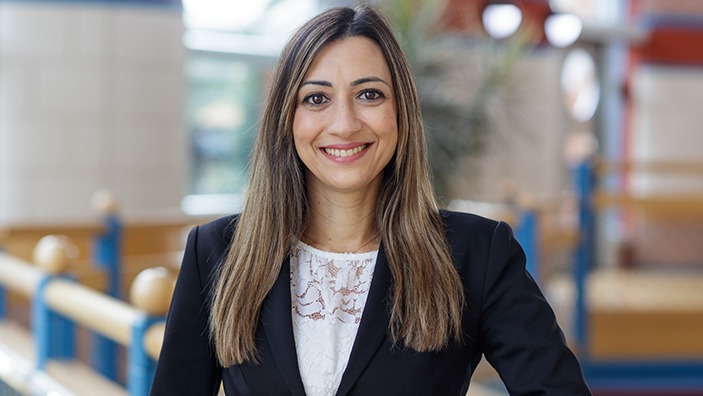
Cambridge Judge’s Stella Pachidi: “I hope that policymakers and world leaders will manage to make big steps forward in regulating AI in order to help ensure a sustainable future”
Stella Pachidi, Assistant Professor in Information Systems, Cambridge Judge Business School
It is mind-blowing how much has changed this past year in the field of artificial intelligence, and Generative AI tools continue to improve – which will keep everyone on their toes for further developments in 2024. Organizational leaders across all industries are grappling with how emerging AI-based tools are about to shape how they create value for their customers and what this means for managing the workforce. With the integration of AI in Internet search, the web as we know it may completely change, and that will bring severe transformations in business models.
I am puzzled what this will mean for the future of truth and knowledge in the not-so-distant future. I hope that policymakers and world leaders will manage to make big steps forward in regulating AI in order to help ensure a sustainable future.
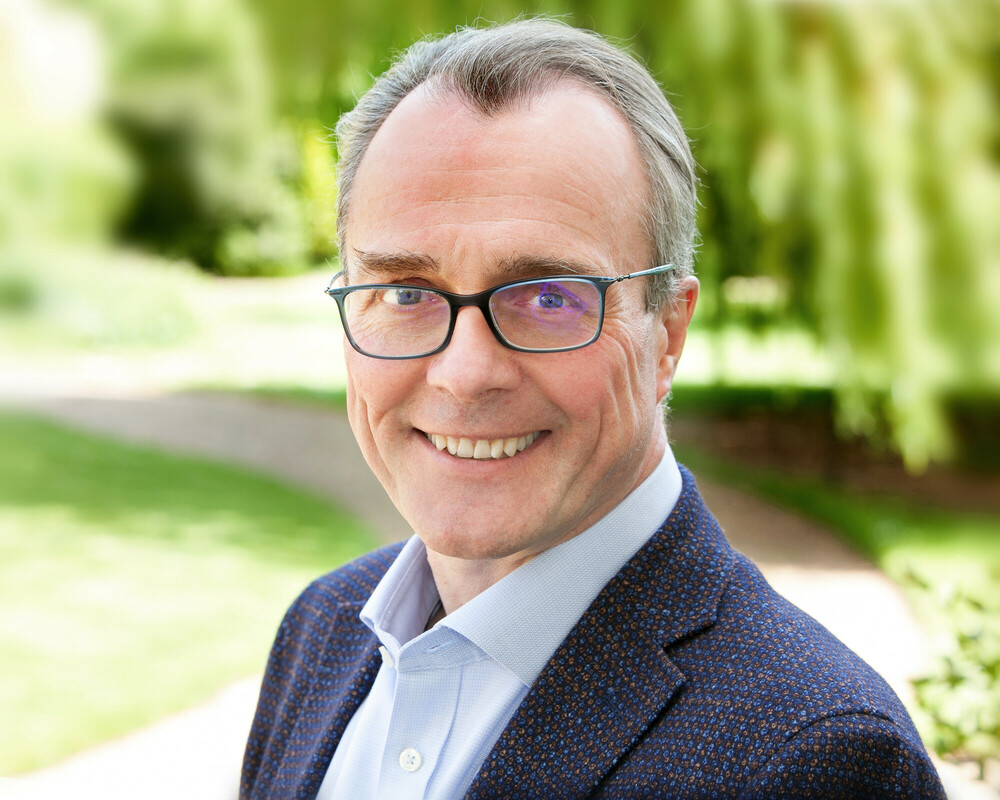
London Business School’s Julian Birkinshaw: “The global cost of living crisis is still biting for many. Conflicts are fuelling humanitarian crises on a significant scale. Extreme weather events across the globe are demonstrating the climate emergency. All will continue to demand attention in 2024”
Julian Birkinshaw, Vice Dean, London Business School
The economic, geopolitical and environmental challenges witnessed in 2023 are showing no signs of abating. Consequently, the overall landscape in which business schools will be operating in 2024 is likely to remain unsettled. The global cost of living crisis is still biting for many. Conflicts are fuelling humanitarian crises on a significant scale. Extreme weather events across the globe are demonstrating the climate emergency. All will continue to demand attention in 2024.
Our students are the business leaders of tomorrow. We need to help them make sense of the pressing issues facing society – sustainability, social inequality, technological disruption – and give them the tools to help them find solutions. We also need to instil a sense of ambition in them – a courage to take responsibility for what needs to be done, rather than allowing others to set the agenda. In short, we want our students to become positive agents of change. We need leaders who understand the way business impacts the world and are willing to be part of the solution. After all, there is no Planet B.
DON’T MISS 2024 RESOLUTIONS FROM DEANS AT THE WORLD’S TOP B-SCHOOLS











Questions about this article? Email us or leave a comment below.